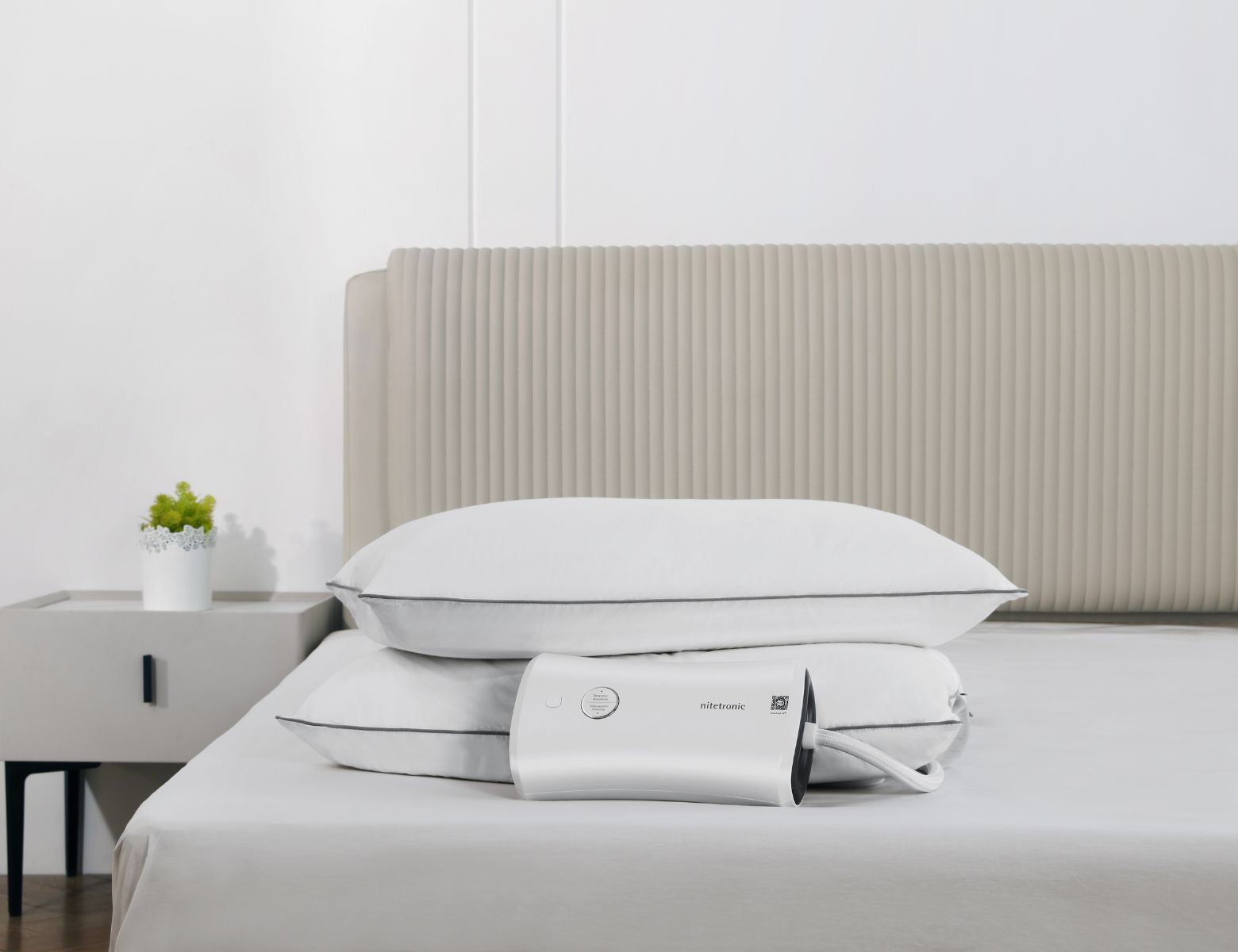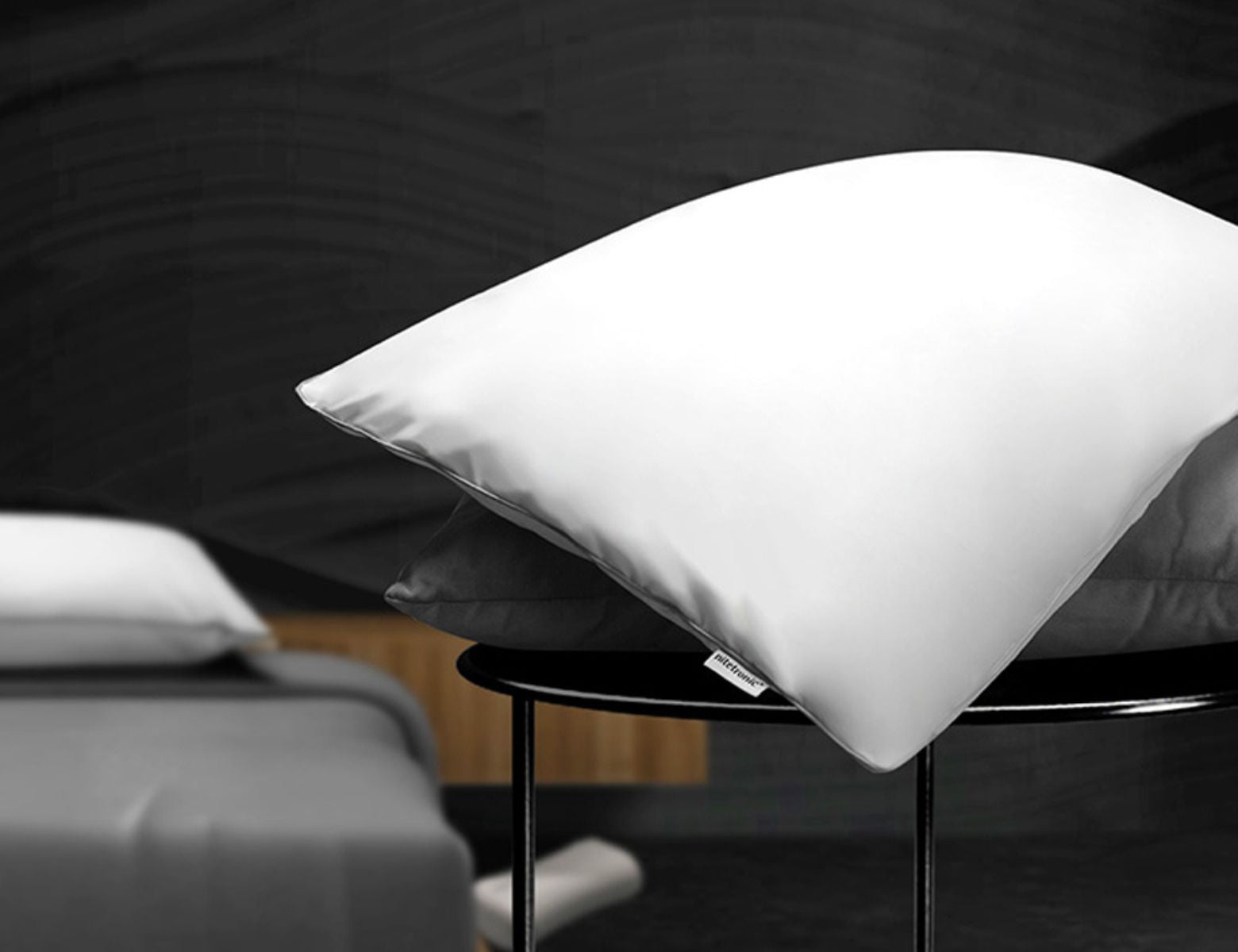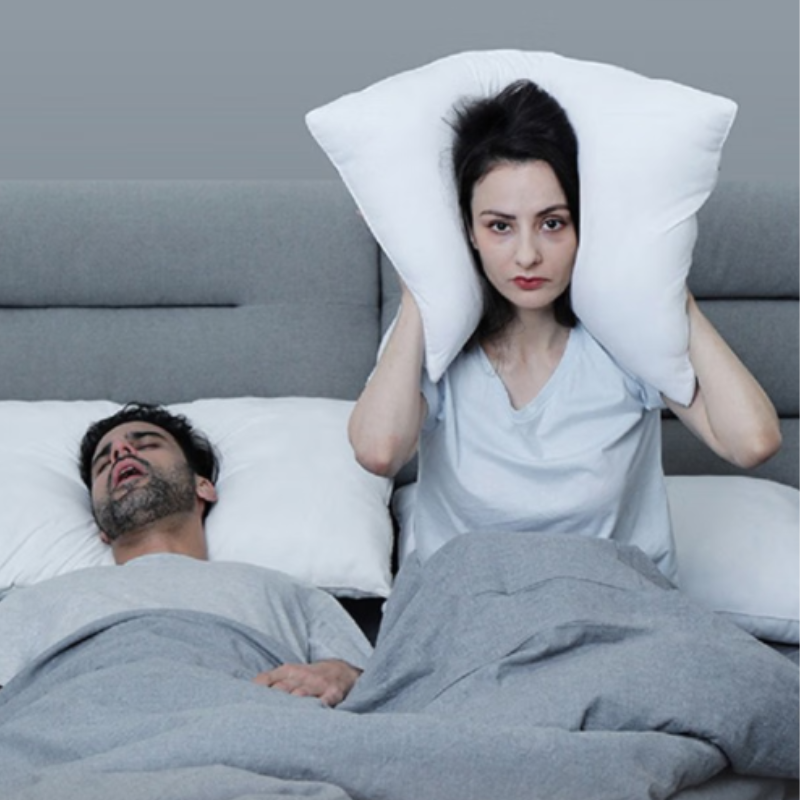Snoring is common and many people take snoring as a sign of sound sleep, but exactly the opposite is true. Snoring not only disturbs others, but also causes serious harm to our health.
Snoring occurs due to the vibrations of soft tissue in the upper respiratory tract. That is to say, snoring is related to breathing. The narrower the airway, the louder the snoring. The interval between snoring will evolve into sleep apnea and cause a variety of diseases. Severe cases may even cause sudden death at night.
If you don't pay attention to snoring, 5 serious consequences may await you.
1. Poor Sleep
Sleep apnea can cause sleep disruption, hypercapnia and hypoxaemia.
Continuous apnea and breath holding during sleep will cause frequent micro-awakenings, like a knife cutting the entire sleep into small fragments, resulting in "fragmented sleep". And it is difficult to enter into deep sleep.
2. Lack of oxygen in the body
Airway narrowing or sleep apnea reduces oxygen intake, causing hypoxia in organs throughout the body, so the damage to snoring is systemic.
3. Induce hypertension and diabetes
Repeated pauses in breathing or decreased airflow can seriously damage the walls of blood vessels, causing a decrease in blood vessel elasticity, thereby causing or aggravating high blood pressure.
Snoring can also cause insulin resistance and disorders of glucose metabolism in the body, thereby inducing the occurrence of diabetes.
4. Increase the risk of myocardial infarction
Repeated pauses in breathing will cause a decrease in oxygen content in the blood, and the probability of complicated arrhythmias in patients with severe snoring is 2~4 times that of ordinary patients with coronary heart disease.
5. Affect fetal health
The rates of gestational hypertension and pre-eclampsia were 8% and 6% higher in pregnant women who snored than in healthy pregnant women.
In addition, long-term snoring can also increase the risk of asthma, glaucoma, endocrine and other diseases, and even promote the occurrence and progression of tumors.
There is only one reason to "treat" snoring: to save your life
Prompt intervention at the beginning of snoring is not only a "Treatment" method, but also a life-saving method to prevent sudden death during sleep.
At present, there is no clinical drug for snoring, here are 3 "behavioral therapies" for reference, which can help improve airway narrowing and relieve snoring symptoms.
- Weight loss
Obesity is one reason to cause snoring, especially in people with a circumference of more than 43.18 cm in the neck, and weight loss can help relieve symptoms.
5 days a week and 30 minutes of exercise every day, such as walking, swimming, cycling, etc., with "heart rate = 170 - age" exercise intensity is appropriate.
Patients with a body mass index (BMI) of more than 28 and other health risks, or patients with a BMI value of more than 30, can consider drugs to lose weight on the basis of reasonable diet and exercise.
- Quit smoking, limit alcohol, and don't stay up late
People who stay up late sleep more deeply than ordinary people because their bodies are very tired, and it is easy to relax the throat muscles and narrow the airways.
Smoking and drinking paralyze the nerves around the airways, causing the muscles in the throat to relax more and resulting in a relatively narrow airway.
Breaking away from bad lifestyle habits such as staying up late, smoking, and drinking alcohol can help reduce the symptoms of snoring.
- Sleep on your side
When lying on the back, the base of the tongue is closer to the mandible and the posterior pharyngeal wall, and the volume of the pharyngeal cavity decreases further, which can aggravate the symptoms of pharyngeal stenosis, so it is easier to snore than lying on the side.
People who snore can try to change their sleeping position and sleep on their side.
An online doctor or an offline professional clinic, professional doctors will recommend that snorer sleep on their side.
But people's sleeping posture is uncontrolled during asleep, so how to keep sleeping on their side?
Try Nitetronic Smart Anti-Snore Pillow! After intelligently receiving and analyzing the snoring sound, the flexible air chambers in the pillow bulges to push the user's head to turn sideways to achieve a side sleep state.
Many people who are worried: sleeping on the side all the time puts a lot of pressure on the cervical spine. When getting up in the morning, the neck is sore. And it will also lead to large and small faces. You don't have to worry about this when using a Nitetronic Smart Anti-Snore pillow. After the snoring becomes significantly lower or stops, the air chambers in the pillow will deflate and return to the original state.














Leave a comment
This site is protected by reCAPTCHA and the Google Privacy Policy and Terms of Service apply.